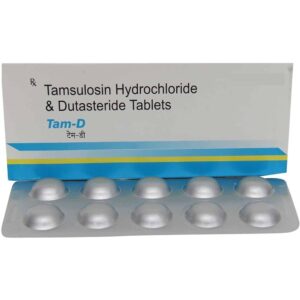MEFENAMIC ACID + NOSCAPINE + DROTAVERINE
Mefenamic Acid: Mefenamic acid is a nonsteroidal anti-inflammatory drug (NSAID) that is commonly used for the treatment of pain and inflammation associated with various conditions. It is available in tablet form and is usually taken orally.
The mechanism of action of mefenamic acid involves the inhibition of the enzyme cyclooxygenase (COX), which is responsible for the synthesis of prostaglandins. Prostaglandins are lipid compounds that play a role in pain and inflammation. By inhibiting COX, mefenamic acid reduces the production of prostaglandins, leading to decreased pain and inflammation.
The usual adult dose of mefenamic acid for pain relief is 250 mg taken orally every 6 hours, with a maximum daily dose of 1.5 grams. However, the specific dosage may vary depending on the condition being treated and the individual response. It is important to follow the prescribed dosage instructions provided by your healthcare provider.
Mefenamic acid may cause various side effects, including abdominal pain, nausea, vomiting, diarrhea, constipation, indigestion, heartburn, dizziness, headache, drowsiness, fluid retention, edema, high blood pressure, rash, itching, and allergic reactions. It may also increase the risk of gastrointestinal bleeding and ulcers, especially in older adults or those with a history of gastrointestinal problems.
It is important to note that mefenamic acid should not be used during the last 3 months of pregnancy as it may harm the unborn baby. It should also be used with caution in individuals with a history of asthma, allergic reactions, bleeding disorders, kidney or liver disease, and heart disease.
As with any medication, it is crucial to consult with a healthcare professional before starting or stopping mefenamic acid to ensure it is safe and appropriate for your specific situation.
Noscapine: Noscapine is a non-narcotic cough suppressant drug that is primarily used to alleviate cough symptoms. It is derived from the opium poppy plant and is classified as an antitussive agent.
The exact mechanism of action of noscapine is not fully understood, but it is believed to work by affecting the cough control center in the brain. It acts as a mild opioid receptor antagonist and also inhibits the reuptake of the neurotransmitter serotonin, which helps to reduce the sensitivity of the cough reflex.
Noscapine is usually available in the form of oral tablets or capsules. The recommended dose for adults is typically 15-30 mg, taken every 4-6 hours, with a maximum daily dose of 120 mg. It may also be used in children, with the dose adjusted according to their age and weight. It is important to carefully follow the dosage instructions provided by a healthcare professional or on the product label.
As with any medication, noscapine may cause side effects. The most common side effects include drowsiness, dizziness, nausea, stomach upset, and constipation. These side effects are usually mild and temporary, but if they persist or worsen, it is advisable to consult a healthcare professional.
It is worth noting that noscapine is not recommended for individuals with a history of opioid addiction or respiratory depression. It is also advised to use caution when using noscapine alongside other medications that can cause sedation or respiratory depression, such as opioids or benzodiazepines.
Overall, noscapine is considered a safe and effective cough suppressant when used as directed. However, it is always important to consult with a healthcare professional before starting or stopping any medication and to inform them about any underlying medical conditions or other medications being taken.
Drotaverine: Drotaverine is a medication that belongs to the class of antispasmodic drugs. It is primarily used to relieve and treat pain and spasms in the smooth muscles of the gastrointestinal tract, as well as in the genitourinary system.
The mechanism of action of Drotaverine involves the inhibition of the enzyme phosphodiesterase IV (PDE IV). By inhibiting this enzyme, Drotaverine increases the levels of cyclic adenosine monophosphate (cAMP) in smooth muscle cells. This results in the relaxation of smooth muscles, leading to the relief of pain and spasms.
The usual recommended dose of Drotaverine for adults is 40-80 mg taken orally 2-3 times daily, depending on the severity of the symptoms. It is important to follow the prescribed dosage and consult a healthcare professional for specific dosing instructions.
As with any medication, Drotaverine may cause certain side effects. Common side effects include dizziness, headache, dry mouth, and gastrointestinal disturbances such as nausea, vomiting, or constipation. These side effects are generally mild and temporary. However, if any severe or persistent side effects are experienced, it is important to seek medical attention.
It is worth noting that Drotaverine should be used with caution in patients with liver or kidney problems. Pregnant or breastfeeding individuals should also consult their healthcare provider before using Drotaverine, as its safety during pregnancy or lactation has not been well-established.
As with any medication, it is important to follow the instructions provided by the healthcare professional and to only use Drotaverine as prescribed. If there are any concerns or questions regarding the use of Drotaverine, it is recommended to consult a healthcare professional for guidance.

